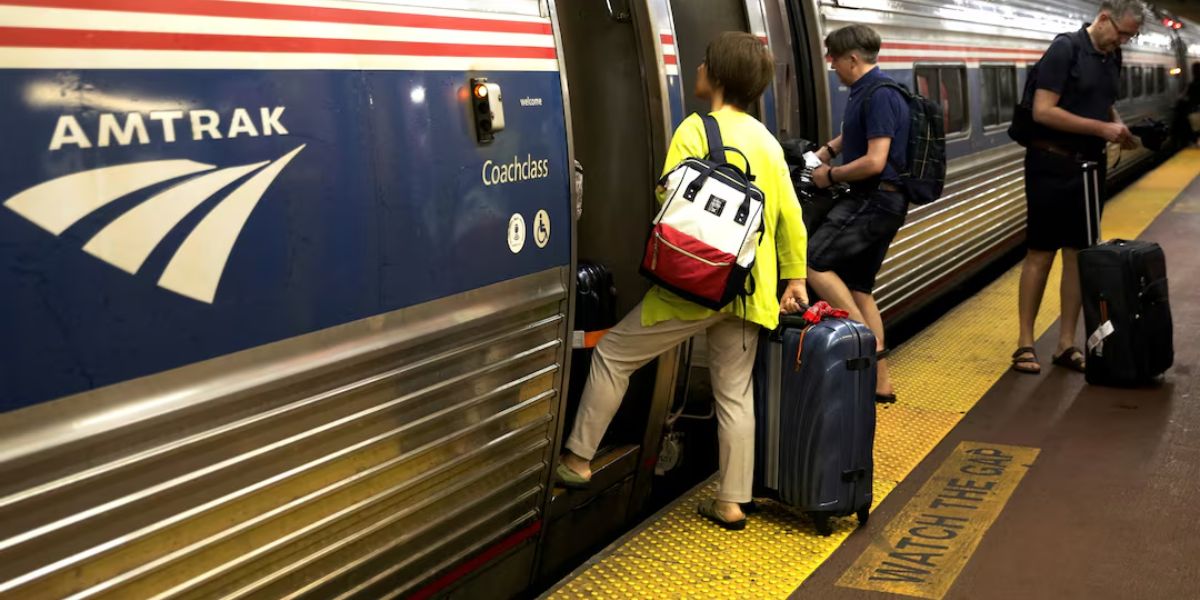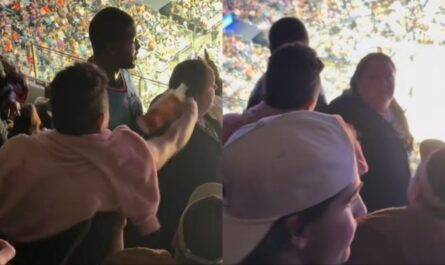The San Diego City Council passed a solid-waste fee on Monday, ending a 106-year-old policy of not charging single-family homes a fee for trash pickup. The meeting was long and loud.
City residents will be charged $42.76 a month for three 95-gallon trash cans starting July 1. One can will be used for trash, one for recycling, and one for organics like yard waste or food scraps. It doesn’t matter how much trash the residents make. The city says that about 85% of city people use the three 95-gallon plan. Those who don’t can switch plans in July, and in October, all payers will get new bins.
In the first few months of the fee, people who pay for more bin room than they need can downsize and pay less. They will get a credit for the difference.
Councilman Sean Elo-Rivera said, “This is not a new cost; this is a cost that has been borne by those who do not receive city services.” He was reminding everyone at the meeting that the city will be facing deep cuts at Tuesday’s meeting to approve the budget for Fiscal Year 2026.
In 2022, Council President Elo-Rivera and Councilman Joe LaCava put forward Measure B, which would have let the city charge for collecting, transporting, dumping, and recycling solid waste, as well as the cost of bins. The measure would have made short-term vacation rentals, accessory dwelling units, and “mini-dorms” that currently get trash picked up by the city pay for the services.
Before the vote on Monday, Council President LaCava said, “Tomorrow we will be working on a draft budget that cuts $110 million.” “That budget would lose $80 million if we don’t pass a trash fee.” Do you want to find more ways to cut $80 million? “I understand that I don’t.”
That close victory for Measure B came with an estimate of a $23–$29 trash fee to change the “People’s Ordinance,” which was passed in 1919. But this was based on the idea that the city served 285,000 people.
When faced with the possibility of a new fee, the Environmental Services Department thought about how many homes the city served after the election. They found 226,495 households, which is almost 60,000 more than they thought.
The claimants say the plan is illegal because the fee is higher than what it costs to haul away trash and is really a tax, according to Joey Safchik of NBC 7.
Because of this, the fee went up from $36.72 per month to $47.59 per month when the cost study came back in April 2025. The people mostly didn’t like that, so the fees were changed to a range of $31.98 to $42.76 for the first year. This was done by delaying services like picking up large items and starting a pilot program for electric vehicles.
At Monday’s council meeting, more than 100 people spoke, and most of them were against the fee. A lot of the people who spoke were older adults who were worried about having to pay an extra fee or because they said they didn’t make much trash. Some people wanted to be able to say no to service and handle that themselves.
Some people said the city’s first plan for Measure B, which would have raised taxes on people making $29 or less a year, was dishonest and asked the council to put it to a vote again. A number of lawyers said they would sue or threatened to sue the city for breaking voters’ trust.
A lot of people in my area agreed that they had to pay a fee, said Councilwoman Marni von Wilpert. “But I’ve been told over and over again they wouldn’t have approved the higher fee.”
The city’s general fund pays for trash pickup for single-family homes. All residents, whether they own or rent a single-family house, condo, or apartment, pay property tax into this fund. Around 300,000 tons of trash and 150,000 tons of recycling, compostables, and yard waste are taken away by the city every year.
“I don’t think the final product is what most people in the city voted for,” said Councilman Raul Campillo, who didn’t vote. “I was afraid that letting this fee go through would make people not trust this council.” This is what people who sent me texts say they are afraid.
Campillo suggested that the council make it a rule that all election measures must be accompanied by a cost-of-service study before they can be put to the vote. This would avoid the problem of the estimated versus actual cost that came up with the trash fee. He called what they did a “bait-and-switch.”
Activists had been against the law for years because they thought it was unfair that only single-family homes got free trash pickup even though all households paid property tax either directly or through rent. A grand jury in San Diego County decided in 2009 that the ordinance was “no longer useful in a 21st century society.”
The city got about 46,000 complaints from the 226,495 people who would have to pay the fee. To stop the item before it got to the council, more than 113,000 people would have had to make a protest.
According to city records, $3 million should be set aside for a financial aid program that would help about 2% of customers by giving them a full subsidy, 3.5% of customers by giving them a 50% subsidy, and 10% of customers by giving them a 20% subsidy.
Council President pro Tempore Kent Lee said that the program to help people get money was “critical” to making the solid-waste fee possible.
The public was told that Councilwoman Jennifer Campbell was sorry for the $4.5 million consulting fee she had to pay to do the cost-of-service study, but she said it was the law.
City documents that were shared with the ballot measure in 2022 said that between fiscal years 2023 and 2027, it would cost at least $234.7 million to keep the service the same without charging more.
The ESD says that only 32% of the city’s trash ends up in dumps, which is a long way below its goal of 80%. Staff from the city said that number could go up if recycling was picked up once a week. As the Miramar Landfill is set to fill up in 2031, city leaders are thinking about how to move trash to other places.
The council will get together again on June 24 to talk about accepting the fee through tax roll billing. On July 1, the fee will start, and on July 15, residents will be able to use the ESD site to choose new containers or change their plans. On October 1, users will start getting new containers.


 by
by 

